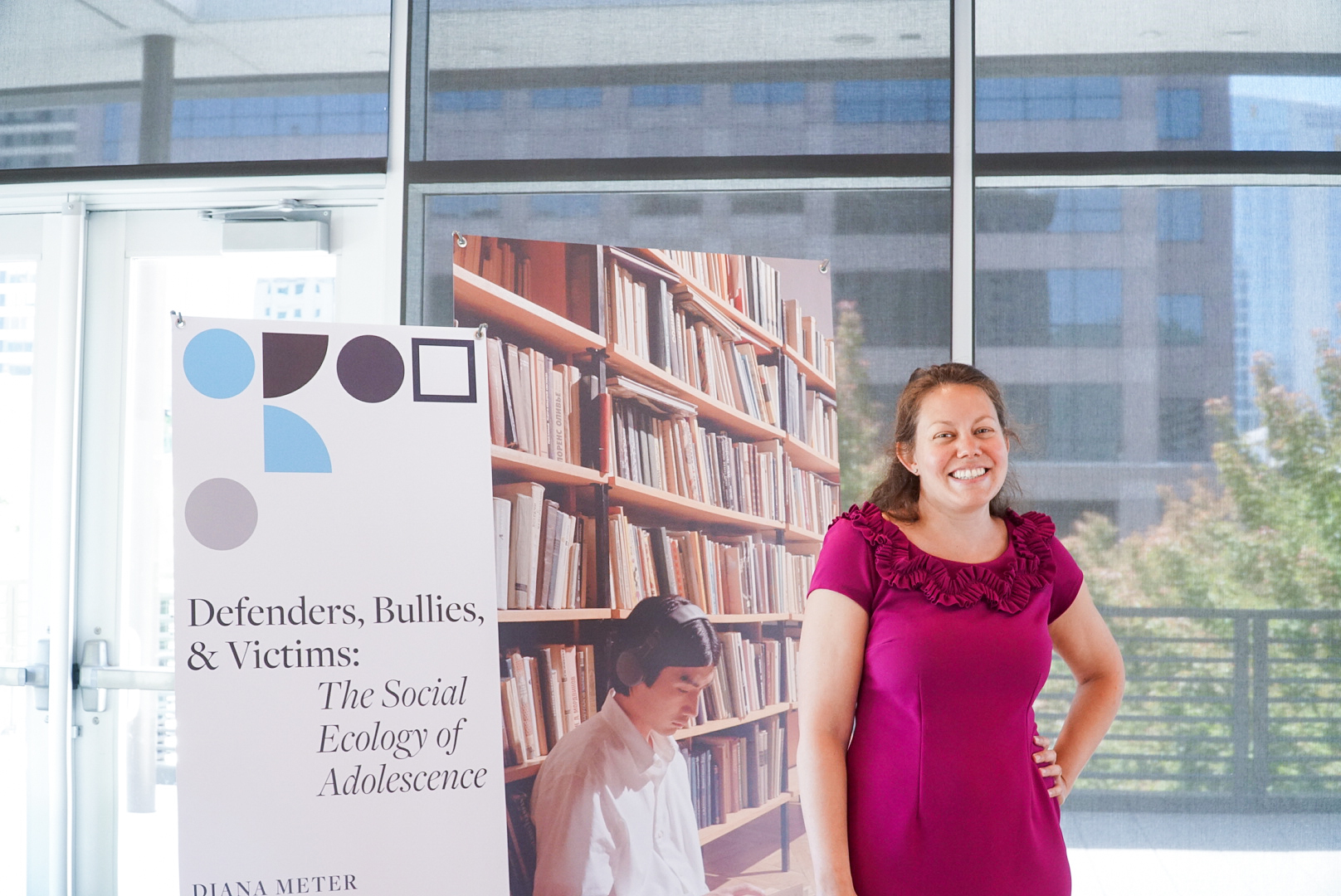Defenders, bullies, and victims
The social ecology of adolescence
Everyone wants to be part of a community. This is especially true for young people as they are discovering who they are and how they fit in the world. Unfortunately, many children face bullying and other acts of victimization. But what causes bullying? How can defenders reduce its frequency? Is bullying preventable?
Those are the questions being asked by Dr. Diana Meter, a researcher in Utah State University's Human Development and Family Studies department, who explores what factors predict when kids will stand up for each other and how we can encourage more defenders.
Dr. Meter shared her findings at Blue Plate Research, held in person for the first time on June 7, 2022, at Gallivan Hall in downtown Salt Lake City.
Dr. Meter discussed the results of some of her findings, including:
- Who is most likely to be a defender
- A way to identify defenders in a peer group
- What impact does speaking up have on the defenders themselves
Watch Full Presentation
Featured Presenter

Diana Meter
Dr. Diana Meter is an assistant professor in the Department of Human Development and Family Studies in the Emma Eccles Jones College of Education at Utah State University. On her episode of the Instead podcast, she discussed her research on the psychology of bullies, the impact on victims, and the influence defenders can have.
Meter points out that most kids are bullied about things that are outside their control, like body shape, gender, sexual orientation, etc. When asked about the oft repeated saying that bullying builds character, she says, “Through that, somebody may be able to learn skills and adapt to their situation, but at what cost?" Meter further shows how victimization can lead to depression, anxiety, and acting out.
In contrast to aggressors, Meter’s latest research has focused on a group called “defenders” who stand up for victimized students. Though defenders anecdotally had a positive impact on their peers, Meter found a lack of research on the subject and focused her studies on that topic.
Visit Dr. Meter's faculty profile to learn more about her research and interests.

